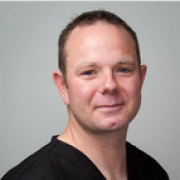Medical Services
General Practice
General practice is a branch of medicine that provides comprehensive primary healthcare services to individuals of all ages and genders. General practitioners (GPs), also known as family doctors or primary care physicians, are trained to diagnose and treat a wide range of acute and chronic health conditions, offer preventive care and health promotion, manage ongoing medical issues, and coordinate referrals to specialists when needed. They serve as the first point of contact for patients seeking medical care and provide continuity of care by building long-term relationships with their patients. General practice encompasses a broad spectrum of medical services, including routine check-ups, immunizations, management of chronic diseases, minor surgical procedures, and counseling on lifestyle modifications for overall health and well-being.
Women’s Health
Women’s Health refers to the branch of medicine and healthcare services dedicated to addressing the unique health needs and concerns of women throughout their lifespan. It encompasses a wide range of medical conditions, reproductive health issues, preventive care, and wellness promotion specific to female anatomy, physiology, and life experiences.
Key aspects of Women’s Health include:
- Reproductive Health: This includes menstrual health, contraception, fertility, pregnancy, childbirth, and menopause-related issues.
- Gynecological Care: Routine screenings such as Pap smears, pelvic exams, and breast exams are essential for early detection of gynecological conditions like cervical cancer, ovarian cancer, and breast cancer. Additionally, management of conditions such as menstrual disorders, pelvic pain, endometriosis, and polycystic ovary syndrome (PCOS) falls under gynecological care.
Mole Scan and Removal
Mole scan and removal is a medical procedure involving the examination, assessment, and potential removal of moles on the skin. During a mole scan, a healthcare professional uses specialized equipment, such as a dermatoscope, to examine moles for signs of irregularity, asymmetry, border irregularity, color variation, and changes in size or shape that may indicate skin cancer or other abnormalities. If a mole is deemed suspicious or poses a risk of skin cancer, the healthcare provider may recommend its removal through procedures such as excision, shave biopsy, or laser therapy. Mole scan and removal are essential for early detection and treatment of skin cancer and for ensuring the overall health and safety of individuals.
Pathology
Pathology is the medical specialty concerned with the study of diseases and their effects on the human body. It involves the examination of tissues, organs, bodily fluids, and other specimens to diagnose diseases, monitor treatment effectiveness, and predict outcomes. Pathologists analyze samples obtained through procedures such as biopsies, surgeries, and autopsies using various laboratory techniques, including microscopy, molecular testing, and immunohistochemistry. By identifying abnormal changes at the cellular and molecular levels, pathologists play a crucial role in guiding patient care decisions, understanding disease mechanisms, and advancing medical knowledge.
Childhood Vaccination Clinic
A Childhood Vaccination Clinic is a healthcare facility or program dedicated to providing vaccinations to infants, children, and adolescents according to recommended immunization schedules. These clinics offer a range of vaccines to protect against common childhood diseases, including measles, mumps, rubella, polio, diphtheria, tetanus, pertussis, hepatitis B, Haemophilus influenzae type b (Hib), pneumococcal disease, rotavirus, varicella (chickenpox), and human papillomavirus (HPV), among others. Childhood Vaccination Clinics play a critical role in promoting public health by ensuring that children receive timely and appropriate vaccinations to prevent the spread of infectious diseases, reduce illness and complications, and safeguard individual and community health. They often provide education and counseling to parents and caregivers about the importance of vaccination, vaccine safety, and the benefits of herd immunity.
Corporate Health Services
Corporate Health Services refer to healthcare programs and services offered to employees within a corporate setting. These services are designed to promote employee health, wellness, and safety, as well as to address medical needs and concerns that may arise in the workplace. Corporate Health Services may include:
- Occupational Health and Safety Programs: These programs focus on preventing workplace injuries and illnesses, conducting risk assessments, implementing safety protocols, and ensuring compliance with health and safety regulations.
- Employee Wellness Programs: These initiatives aim to improve employee health and well-being through activities such as health screenings, fitness programs, nutrition counseling, stress management workshops, and smoking cessation support.
Diving Medicals
Diving Medicals are specialized medical examinations conducted to assess an individual’s fitness to scuba dive safely. These examinations are typically required for individuals seeking certification as recreational or professional divers, as well as for those involved in commercial diving activities. Diving Medicals evaluate various aspects of an individual’s health and medical history that may impact their ability to dive safely, such as respiratory health, cardiovascular fitness, ear and sinus function, and psychological well-being. The examinations may include physical assessments, medical history reviews, vision and hearing tests, lung function tests, and neurological evaluations. The goal of Diving Medicals is to identify any medical conditions or risk factors that could predispose an individual to diving-related injuries or complications and to provide guidance on safe diving practices and potential limitations. Compliance with Diving Medical requirements helps ensure the safety of divers and minimizes the risk of diving accidents and injuries.
Doctors At This Practice Offering This Service

Dr Greame Fearns

Dr Hannah Williamson

Dr Khowla Therwat

Dr Philip Calderbank

Dr Stephen McChord

